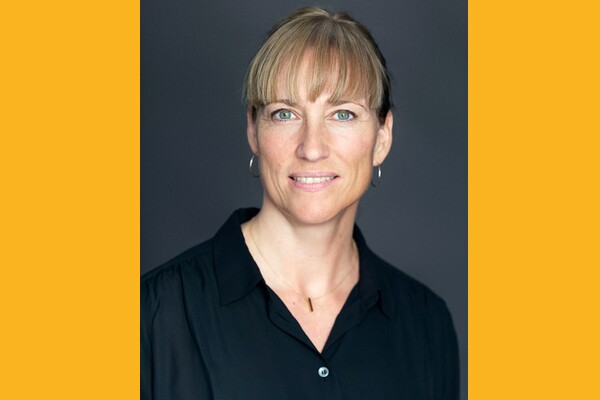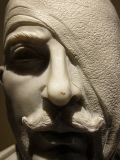
Marie Sandberg
Letter of the President
Marie Sandberg announces SIEF’s statement ‘Stop the Violence and Return to Dialogue’. She looks back on the 16th SIEF Congress in Brno in June 2023, and she welcomes two new Board members: Daniela Salvucci and Hande Birkalan-Gedik.
Dear Colleagues,
On the dire Israel-Palestine situation, SIEF has published the statement: “Stop the Violence and Return to Dialogue” in which we condemn the Hamas terrorist actions on October 7, 2023, and all civilian killings and atrocities committed to the Palestinians and the Israelis. You can read the statement here. The publishing of statements certainly does not change the world, but we think it brings an important message to the SIEF community, that we care and that we do not remain silent. Our deepest thoughts go to all victims and their families, friends, and neighbors, and we extend our solidarity to colleagues and students across the region.
On a more positive note, it was such a treat to see more than 900 scholars of ethnology, folklore, and adjacent fields gathered around the joint mission of exploring the implications of Living Uncertainty. The 16th SIEF congress in Brno in June 2023 was indeed a huge success, not least thanks to our wonderful hosts. Once again, a huge thank you to the Institute of Ethnology of the Czech Academy of Sciences, the Department of European Ethnology of the Faculty of Arts of Masaryk University, and the National Institute of Folk Culture for making SIEF2023 happen! And an equally huge thank you to Nomad IT, the inspiring keynote speakers, plenaries, roundtables, and more than 132 exciting conference panels and Working Group sessions.
I would like to take the opportunity here to welcome our two new board members, who were elected at the General Assembly in Brno: Daniela Salvucci and Hande Birkalan-Gedik. We look forward to cooperating with you! The SIEF board now consists of ten dedicated colleagues serving our community and I am deeply grateful for all their hard work.
Over the summer you have had the chance to fill out the SIEF2023 Congress Survey; many thanks for an impressive response rate of 50%, counting 443 records in total. We take all your suggestions and constructive criticism to heart. It will help us improve the organizing of our future congresses.
In the survey, we asked you as a final, more open question: What would you NOT change about SIEF congresses? In the responses, we were very happy to see how you appreciate Nomad IT (“they are simply the best J”), the volunteers, the fantastic locations, the high level of quality of panels and papers, the friendly atmosphere, the printed and the electronic conference program, the lunch bags and much more. Yet to me, one of the responses stood out as a certain delightful remark, simply stating: “I am a total SIEF congress addict.” Well, leaving other kinds of drugs of pleasure aside, we are happy to serve you, and we will keenly provide you with more of the good stuff, also at future congresses!
This fall, on September 22, SIEF hosted a workshop on ‘Dark Histories’ of European Ethnologies and Folklore Studies, organized by the DEI-taskforce of the SIEF board in collaboration with the SIEF Working Group on Historical Approaches in Cultural Analysis and former SIEF board member Hanna Snellman. One of our missions of the current SIEF board is to enhance awareness on diversity, equity, and inclusivity (DEI). By taking this move, we aim to promote the SIEF community as a welcoming space for underrepresented and racialized scholarly communities and researchers. While SIEF already promotes diversity on several levels, such as regional diversity, and in terms of gender and career paths, DEI has now become part of SIEF’s overall mission statement, and we will aim to enhance awareness in these matters – from organizing conferences to the activities of our SIEF Working Groups and our SIEF journals.
While the notions of diversity, equity, and inclusion can quickly turn into empty buzzwords or easy catchwords, we also wanted to ensure that DEI is situated within the SIEF community in a relevant way that speaks to us as scholars of ethnology and folklore. We further wanted to look back at our disciplinary histories to critically revisit the roles that European ethnology and folklore studies have had as knowledge producers in the past. Doing so, we think, can help show how scholars contributed to scientific knowledge that was ultimately used by authorities in ways that were unfavorable to the communities studied, including indigenous groups such as the Sámi, Inuit, Roma, and indigenous peoples of Russia. The dark heritages of the Nazi and Soviet eras and the different roles our disciplines have played in political regimes throughout history are important aspects to consider. Reading our disciplinary histories through the lens of DEI is not an easy entrance ticket to secure that we can avoid making the same mistakes again, yet we felt the need for a continuous self-reflexive scrutinization. Organizing this workshop as a first step, we aim to look with a keen eye on the future, with the aim of opening new imaginings. From the side of SIEF, in future, we thus hope that the discussions sparked by this workshop will be continued, for instance in our next SIEF congress in 2025, in the Working Groups, in our SIEF journals and at local departments and in collegial peer-to-peer discussions. We were thrilled to have more than 60 participants in this workshop. Many thanks to the organizers and to the speakers of the workshop for submitting such important and interesting papers. These topics will certainly enhance our knowledge and enrich our discussions on the disciplinary histories of our scholarly fields of ethnology, folklore studies, and related fields.
This SIEF Newsletter presents a plethora of exciting reports from our SIEF Working Groups, new issues of our two SIEF flagship journals, Cultural Analysis and Ethnologia Europaea, and much more. PLease enjoy!
Yours cordially, Marie Sandberg, President of SIEF




